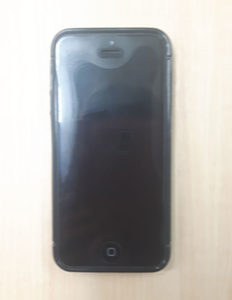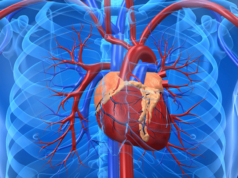
According to a study by researchers from the University of Turku (Finland), a smartphone app could detect myocardial infarction. Requiring no extra equipment, the app uses a phone’s built-in motion sensors—especially the gyroscope. Therefore, the used technology is similar to an app for detecting atrial fibrillation that the research group has also developed (and announced in August). The myocardial infarction detection app should be available for test use in 2017.
A press release reports that the study tested how well a myocardial infarction could be detected using only the data collected with the built-in motion sensors of a smartphone. The study group consisted of 17 infarction patients, who were treated at the Heart Centre of Turku University Hospital. Measurements were taken by placing the smartphone on a patients’ chests for a few minutes while they were lying down and it measured the rotational micro movements of the chest. One recording was taken from each patient during the myocardial infarction and the other after the coronary angioplasty surgery. Next, the researchers compared the two data sets.
The sensors of the smartphone, such as the gyroscope, are so sensitive that it is able to measure the rotational micro movements of the chest caused by the movement of the heart when the phone is placed on the patient’s chest. When the blood flow to the heart muscle is disturbed, these micromovements in the chest are affected and the phone can sense it, says project manager Tero Koivisto from the Technology Research Center (TRC) at the University of Turku.
All iPhones and many Android phones feature a gyroscope. Data processing is carried out automatically and does not need to be interpreted by a person with medical training. Before the actual analysis that is based on machine learning, the data is pre-processed and, for example, the data corrupted by excessive movements is removed. After that, the machine learning algorithm we have developed can immediately tell if the patient is having a myocardial infarction.
In the study, the algorithm detected myocardial infarction with the minimum accuracy of over 70%. The researchers believe that if the app has recorded the patient’s baseline before the myocardial infarction, it should be possible to achieve an accuracy of over 90%. When someone feels acute chest pain, the phone should be placed on their chest in order to start the recording. The data collection phase takes about two minutes. The app analyses the data immediately and gives the result.
According to the press release, the intended use of the app is to encourage patients to seek medical care faster. Researcher Juhani Airaksinen comments: “Our goal is not to rule out heart attacks, but to give a signal to the patient when a real emergency is at hand. In my opinion, this is worth trying, because this kind of a solution could lower the threshold for seeking medical care in a case of acute myocardial infarction. Assessing the symptoms of a heart attack can be sometimes very difficult and the possible additional confirmation given by the app could be extremely necessary.”
The research results were achieved in a New Knowledge and Business from Research Ideas project funded by the Finnish Funding Agency for Innovation. The results were presented at the third European Congress on eCardiology & eHealth (26–28 October, Berlin, October).












